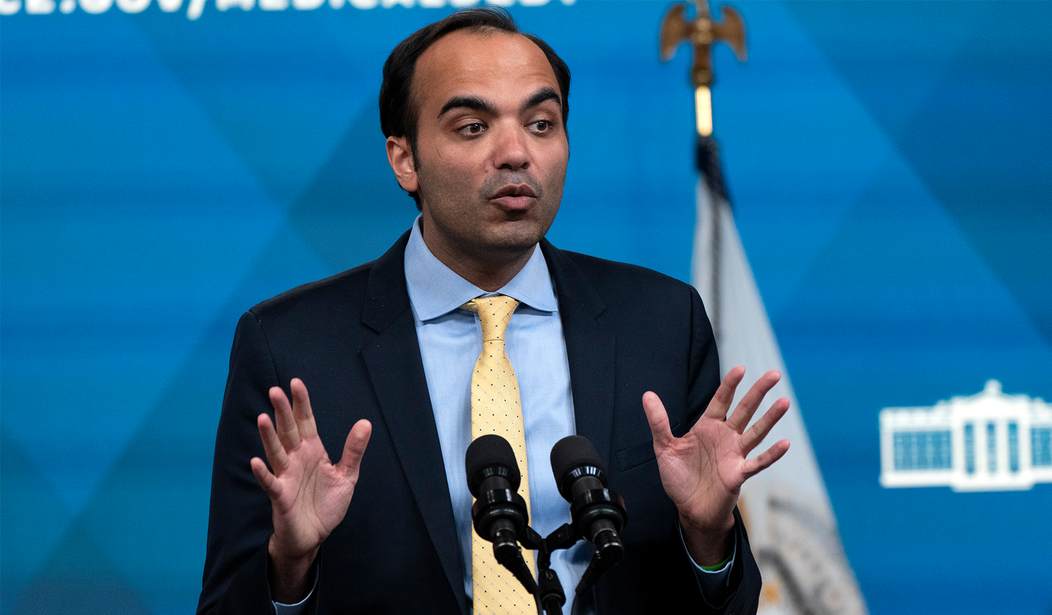While mainstream political media has fawningly devoted much attention over the last week or so to the Biden administration weighing the radical move of simply ignoring a judicial decision it does not like on abortion drugs, the Consumer Financial Protection Bureau (CFPB) has been busy quietly rolling out a policy on supposed “Abusive Acts or Practices.” This new policy should shock conservatives and libertarians almost as much as what Biden is weighing with regard to the decision regarding FDA approval of mifepristone. The move, albeit made in a seemingly boring, arcane, and obscure issue area (financial services), underlines that the Biden administration—headed by the “moderate” Democratic candidate for President in 2020— is not pursuing a “moderate” approach at all when it comes to setting policy. As with abortion policy, policy being driven by the highly activist and neo-Brandeisian-led Federal Trade Commission and key figures at the Department of Justice, the Biden administration is constantly pushing boundaries and looking to make new law, including where its basis for doing so is incredibly shaky and may even fall afoul of the US Constitution itself.
Whereas on the mifepristone issue, Biden is being urged to just pretend a ruling Democrats don’t like never happened, in the case of the “Abusive Acts or Practices” policy, CFPB Director Rohit Chopra is pretending that arguments made by the CFPB in court filings relating to cases that were never actually decided, but instead merely settled, constitute settled law and a valid basis for setting policy. Of particular note, CFPB is accepting comments on the policy, but in the words of one financial industry insider, “There isn’t a comment window and it isn’t a draft proposal.” So, these are the rules CFPB intends to apply, not just moot or throw open for discussion—even if what CFPB is doing is the functional equivalent of promulgating policy based on arguments made at a legal seminar pitting Ruth Bader Ginsburg fans against members of the Federalist Society, where both potentially make compelling cases but where no judgment is issued by a court and little if any consensus occurs surrounding what an appropriate decision by a court might potentially be.
It should go without saying that this is a rather novel—and revolutionary—approach to setting policy. Interestingly, it occurs via footnotes to the policy itself (numbers 47 to 55), where the basis for the policy Chopra is pushing is less obvious to casual observers. Cases referred to there, including CFPB v Think Finance, CFPB v American Debt Settlement Solutions and CFPB (then called the BCFP) v Certified Forensic Loan Auditors were all settled, not decided by the courts. Notably, CFPB v Think Finance was said to “leave more questions than it answers.” Not if you’re Director Chopra, it would appear.
Recommended
Another interesting tidbit that shows that CFPB is taking a very radical approach to formulating policy: One of those footnotes indicates that CFPB wants to subject Native American tribes, who under the US Constitution are subject to federal, not state, law to the laws of the fifty states. As the nonpartisan National Conference of State Legislatures notes, "The Constitution gives authority in Indian affairs to the federal government, not to the state governments. Just as the United States deals with states as governments, it also deals with Indian tribes as governments, not as special interest groups, individuals or some other type of non-governmental entity.” Director Chopra seems not to have noticed this—or does not care. Others, maybe especially Interior Secretary Deb Haaland who is herself Native American and has championed the issue of Native American rights and equity, presumably have—but it appears they were ignored by CFPB.
Does Chopra think he can get away with this because no one cares about the CFPB anymore? Is he banking on Americans only caring about whether New York DA Alvin Bragg’s prosecution of former President Trump is an exercise in political persecution, or whether Bud Light made a bad call in rolling out a line of beer cans celebrating transgender celebrity Dylan Mulvaney, or whether what occurred in the Tennessee legislature leading to the expulsion of two members was or was not the moral and practical equivalent of January 6? Possibly. But Americans of all political stripes should care.
For conservatives and libertarians, this is yet more proof that the Biden administration is dispositionally inclined to behave more like Elizabeth Warren or Bernie Sanders than Jon Tester or Joe Manchin. The specific area of policy impacted here (boring old financial services) does not really matter; the behavior that may be established as “normal” or “acceptable” does. If it continues it will ultimately be used by each of our individual political nemeses to establish as firm policy rules on topics far less arcane, and far more applicable to our lives on a daily basis.
Taylor Millard is a freelance journalist and can be found on Twitter @taylormillard. His work has appeared in The Spectator, Washington Examiner magazine, The Daily Beast, InsideSources, and HotAir.
























Join the conversation as a VIP Member